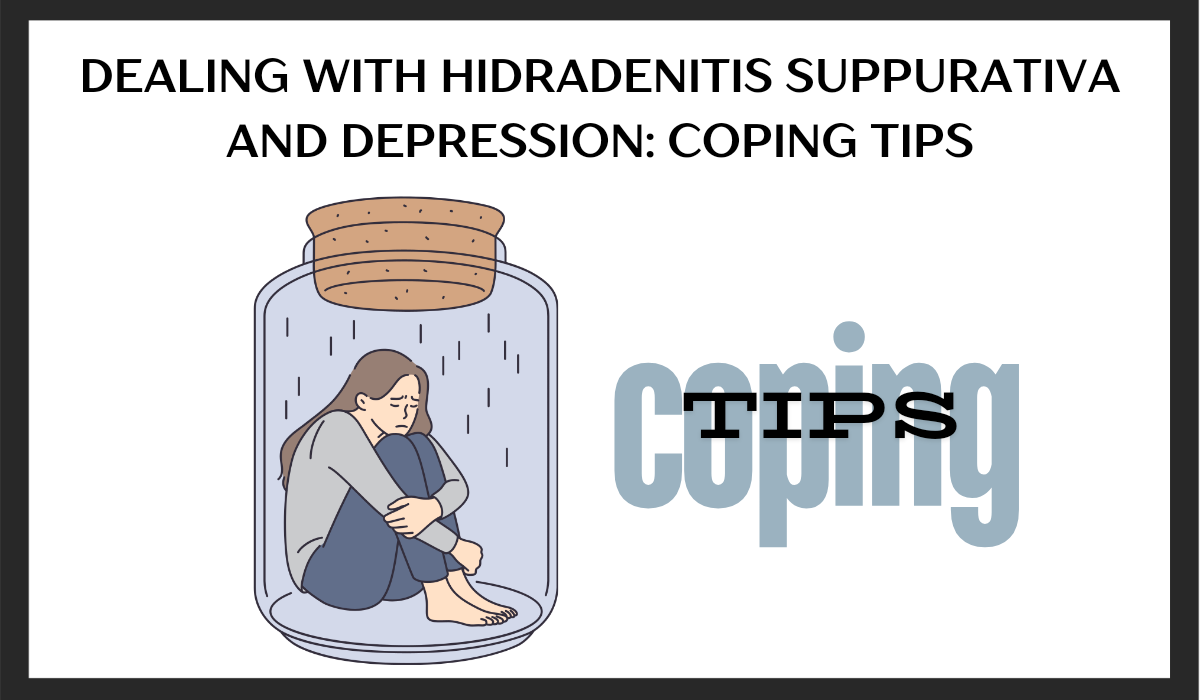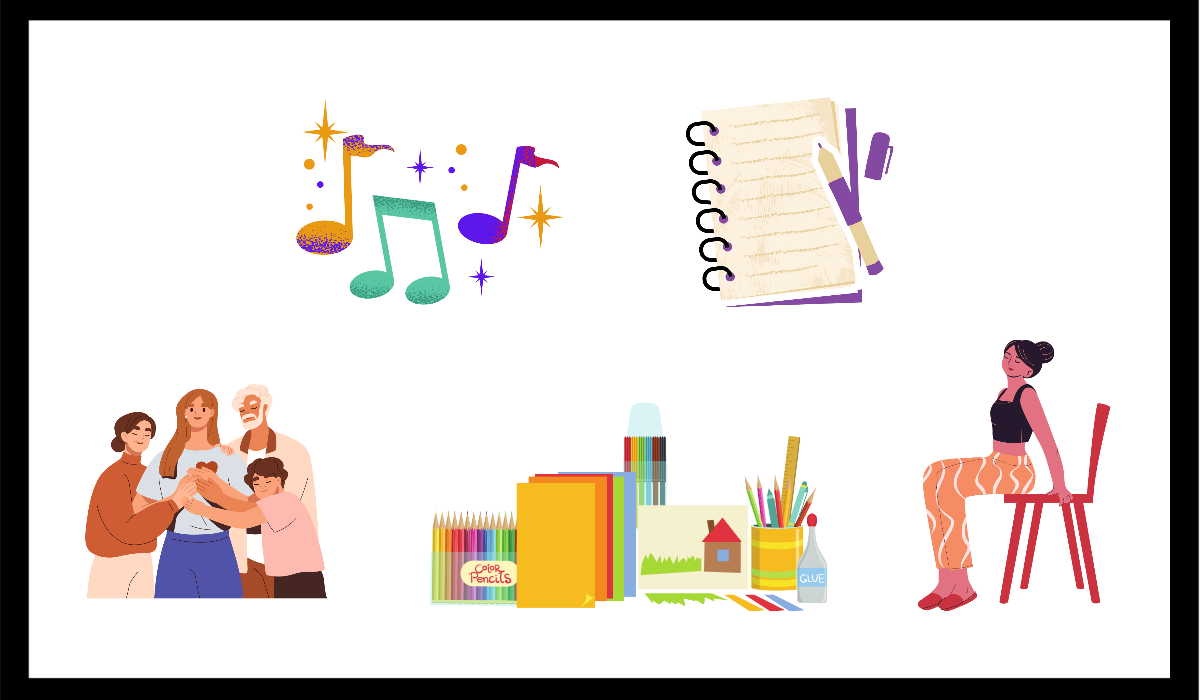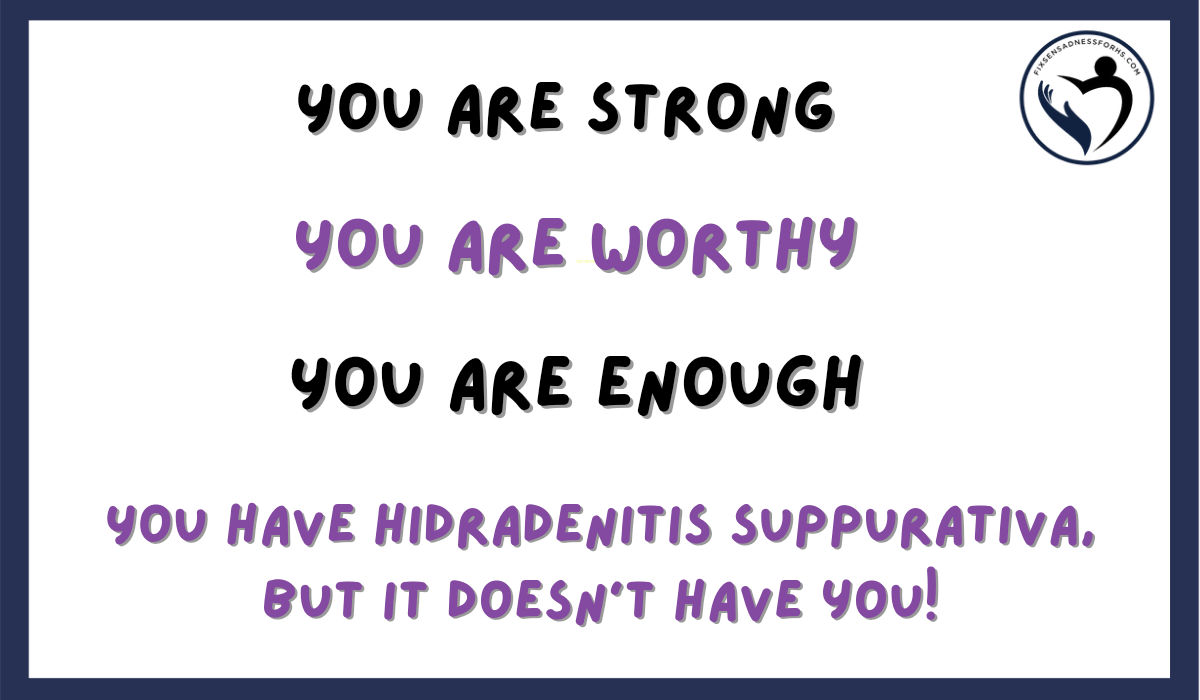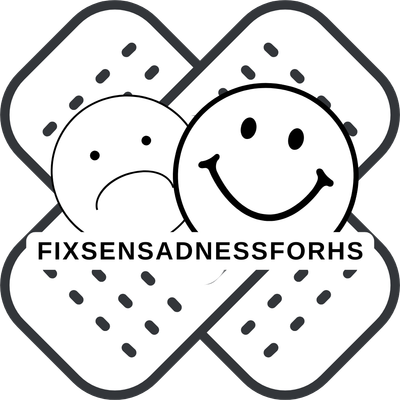Dealing with Hidradenitis Suppurativa and Depression: Coping Tips.

After being diagnosed with a chronic illnesses like Hidradenitis Suppurativa, you may go through both emotional and physical highs and lows. I hope this article provides you with useful tips for managing and coping.
If your depression is disabling and interfering with your daily activities, or if you are having thoughts of suicide, it is crucial to reach out to a medical professional or hot line right away.
Hidradenitis Suppurativa can have a significant impact on lives physically, mentally, emotionally, spiritually, and financially. HS and depression are far too common. And coping with the emotions can be overwhelming.
Before we get into the tips, I want to acknowledge that your feelings are valid.
HS comes with a high psychological burden and a quality of life impact.
The impact on quality of life is often connected to pain, smell, scars, and morbidity. Painful sores limit people’s ability to do daily tasks. Consistent leakage and drainage from abscesses can result in embarrassment, self-consciousness, and isolation, particularly when accompanied by an odor.
A considerable amount of time is spent adapting to life with HS and understanding its impact.
Social interactions can be greatly affected by HS, leading to embarrassment, fear of social stigmatization, and sexual distress. Those afflicted often withdraw socially and experience feelings of low self-worth and depression.
Weight gain can also be a consequence of limited activity because of HS.
Dealing with a chronic illness like HS and being depressed can be challenging, but it’s not impossible.
Ways to Navigate and Tips

Support
It’s essential to have a strong support system, whether it’s from family, friends, counselors, or face-to-face / online support groups. Remember, you don’t have to deal with everything by yourself.
Reach Out And Connect With Others
If you’re feeling up to it, extend an invitation to a friend or family member to join you for a yoga class, coffee, your favorite hobby, or just to chat. Don't wait for others to ask you. They get busy and may not want to bother you.
Explore Therapy Options
- Cognitive-behavioral therapy CBT is a therapy where patients learn to recognize and control negative thoughts and behaviors that can worsen their depression. Supports patients in recognizing unhelpful thoughts, adjusting inaccurate beliefs, changing behaviors that may exacerbate depression, and enhancing positive social interactions.
- Interpersonal therapy (IPT) therapy focuses on helping patients enhance their relationships by teaching them how to express emotions and solve problems more effectively. It aids patients in dealing with difficult life events, improving social skills, and building support networks for managing depression and stress.
Let a/your therapist or counselor know what you hope to achieve through therapy. It should be noted that this does not indicate you will have total control. If you want help, have faith in the process and be willing to put in the work. By effectively communicating your needs and desired outcomes, you can navigate your path.
Look Into Hobbies Or Crafts
Creativity, sensory engagement, self-expression, relaxation, and cognitive stimulation are connected to positive mental health and well-being. By participating in crafts and hobbies, mental health can improve, stress can decrease, and self-confidence can increase.
There are numerous other options to choose from, such as games, gardening, music, adult coloring books, crossword puzzles, crocheting, reading, volunteering, or joining clubs.
Get creative.
Check Out Meditation
Meditation has proven to be highly effective in reducing pain, depression, anxiety, and stress based on personal experiences and research. It has shown to increase focus, better sleep quality, reduced stress levels, decreased blood pressure, enhanced memory, and rewiring of the brain.
There are MANY styles to choose from
Explore a Meditation Room or Garden.
Download meditation apps. My personal favorite is SimpleHabit, but there are many to choose from.
You can benefit from meditation with just a few minutes of practice, no matter where you are. It’s definitely worth exploring and gaining knowledge (even if you’ve attempted it previously). If you’re unsure or think you can’t do it, increase your understanding by reading, taking classes, or enrolling in a course.
Additionally, YouTube offers a diverse FREE selection of great meditation ideas and tools. There are numerous beginner options available, regardless of your knowledge.
Look Into Yoga
Both personal experiences and research demonstrate numerous physical and mental health benefits. Similar to meditation, Yoga can alleviate stress, anxiety, and depression. Additionally, it aids in enhancing sleep and mental and emotional well-being.
Practicing yoga can also enhance flexibility, strength, balance, and posture. Additionally, it can aid in weight loss, cardiovascular and circulatory health. Yoga can alleviate symptoms of asthma, improve cholesterol, triglyceride levels, and immune system function.
Attend yoga classes either in person or online.
Look into chair-based yoga exercises. This entails practicing yoga poses while being seated on a chair. These are available both in person and online.
Bed Yoga. You can practice yoga stretches and breathing exercises from the comfort of your bed.
Similar to the earlier mentioned meditation, YouTube provides a wide range of free ideas and tools for these topics. Combining yoga and meditation could be beneficial for you as well.
Consider Journaling - See Article On This HERE
Ask For Help
Don’t hesitate to seek help from others. If you clearly explain what you need and how they may be able to assist. Open communication will be easier for them to offer help. If you need help with household chores, taking care of your children, or just someone to talk to, don’t hesitate to ask for assistance.
Consider Sharing About Your HS
Sharing your story can sometimes ease the burden.
Relatable communication can increase the likelihood of receiving support.
People may struggle to understand that you are dealing with a chronic illness like HS, which is not always easily visible to others. Make an effort to educate your friends and family to the best of your ability. By engaging in communication, you can help others comprehend the reasons behind canceled plans, limitations, fatigue, low mood, or mobility issues. The more people who understand what is going on with you, the more support you are able to obtain.
If someone in your circle of trust, family, or loved ones is genuinely concerned about your well-being, consider having them join you during your healthcare visits. Allow them access to your medical records so they can understand your condition and provide better support. It’s beneficial for you to have someone who is there for you.
If you are not ready to engage in any of the above suggestions
Consider engaging in activities like a podcast, or watching animal videos. Seek out something that resonates with you and brings you joy, providing an escape from everyday life.
Try Not To Dwell
While you're navigating through depression and your coping journey, try to keep your thoughts busy. Spending too much time on negative thoughts can harm mental well-being, leading to more stress. It’s a cycle that you want to prevent.
Mindset
Despite the negative impact HS can have, it is possible to live happily and fulfilled by learning how to navigate this illness. You can make accommodations in your life and strive for a new “normal”.
While you may choose to forgo certain activities due to the physical toll, try to push through when you can and embrace life, appreciating the good things around you. You might need to put in some extra effort, but give it your best shot every day. Make it a daily habit to engage in positive exercises and thoughts.
Coping can be a struggle, regardless of the situation. Give yourself permission to be kind to yourself. Remember not to go through it alone, and acknowledge your worthiness to receive help.

If your depression is disabling and interfering with your daily activities, or if you are having thoughts of suicide, it is crucial to reach out to a medical professional or hot line right away.
Special Note: Researched, compiled, and written by Denise Fixsen. This information is backed by my 46 years of living with Hidradenitis Suppurativa, 10 years of dealing with multiple chronic illnesses, 36 years of advocacy, and continuous education. And to ensure accuracy, reliability, and trustworthiness, I incorporate peer-reviewed studies and other high-quality sources into my articles and material. I also wanted to inform you that I’ve chosen to end my collaboration with editors on my articles. Although there may be grammar errors due to brain illnesses (mostly), with this said, my content remains reliable, factual, and solid. With genuine TLC.
Medical Disclaimer: This content is solely for information, education, and support. The purpose is not to serve as a replacement for professional medical advice, diagnosis, or treatments.
Sources: doi: 10.1097/YCO.0b013e3282f3ad89, PMC3341916PMID: 22589633doi: 10.4103/0973-6131.85485, PMID: 29619620, PMID: 30153464, PMC6215525, PMC4595910,PMC5704778, PMID: 24979314, PMC4024457, doi.org/10.1089/acm.2012.0709, PMID: 22592178, PMID: 28866110, PMCID:PMC3584580, PMCID: PMC7001362, Harvard Health Publishing yoga-benefits-beyond-the-mat,American Psychological Association helpcenter/chronic-illness.aspx, PMCID: PMC9865498, PMCID: PMC6551580, doi.org/10.1007/s00403-022-02391-7, PMCID: PMC4478054, , DOI: 10.3310/pgfar05030, PMCID:PMC3852369, https://www.apa.org/topics/depression/overcoming, https://www.nimh.nih.gov/health/publications/depression
Article posted on 10-11-2024
